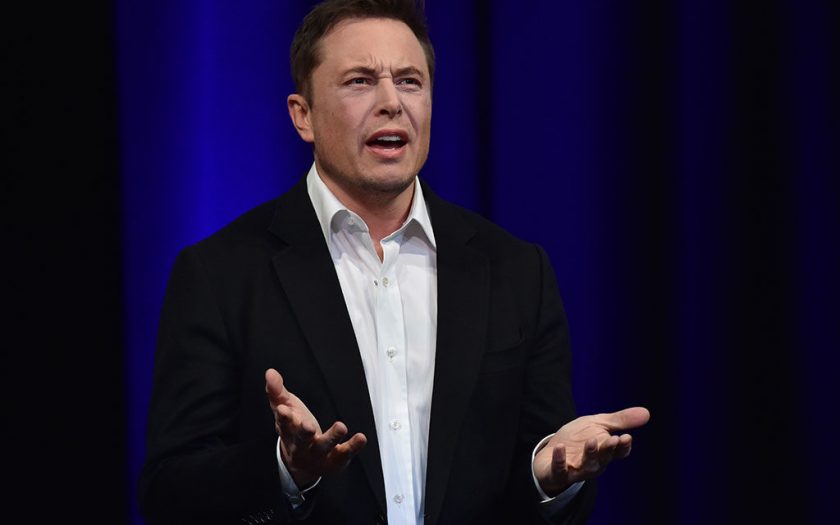
This article is taken from our FREE daily investment email Money Morning.
Every day, MoneyWeek’s executive editor John Stepek and guest contributors explain how current economic and political developments are affecting the markets and your wealth, and give you pointers on how you can profit.
.
In this week’s issue of MoneyWeek magazine
● The star fund managers who fell to earth
● How to spot tomorrow’s big stocks today
● Investing in whisky: liquid profits on the blockchain
● Aviva’s unethical hunt for a loophole in its preference shares
● Shareholders: reclaim your voting rights
● Share tips of the week
It’s funny how nothing matters in markets until it does.
Electric car giant Tesla has essentially regaled its investors with an unending litany of delays, fundraisings and broken promises since it went public.
No one minded. The share price kept going up.
Then you get a bit more bad news – a US regulator looking into a fire in a Model X that crashed in the US last week, plus growing competition – and it doesn’t seem different, quantitatively, to anything that came before.
And yet, suddenly, everyone cares…
The big market warning sign that Tesla is in trouble
I get why people like Tesla.
The goal of the company is admirable, the products desirable, the founder blessed with a sort of anti-charisma that works wonders. There’s an echo of Apple and Steve Jobs there that would be more than enough to attract your average iPhone-blinded tech investor, with few questions asked.
But even the sturdiest Tesla fan has to admit that, whatever else it has achieved, it has proved to be one of the most efficient cash incineration machines ever designed.
And this time, it’s looking harder for Musk to talk his way out of it.
You see, rating agency Moody’s took an axe to Tesla’s credit rating on Tuesday. Moody’s reckons that the fact that Tesla isn’t producing cars fast enough, and is burning through cash means there’s a big risk that it’ll have to raise another couple of billion dollars or so in the near future.
Throw in the investigation into a crash in California (investors are now worrying about Tesla’s autopilot and whether it will retain its lead on self-driving cars), and wider jitters in the market – particularly in tech stocks – and it’s a toxic combination for a stock that’s been running on fumes for a while.
As Liam Denning points out on the Bloomberg Gadfly column, it’s not Tesla’s shares you really need to watch, but its bonds. Tesla’s benchmark bond – which matures in 2025 – now yields more than 7%. That matters, because it represents the biggest gap between Tesla’s yield and the yield on US government bonds (the risk-free rate) seen yet.
That widening “spread” means that bond investors see Tesla as a lot riskier than they have in the recent past. In other words, they are demanding a much chunkier extra yield to compensate them for taking the risk of lending their money to Elon Musk rather than the US government.
(From Musk’s point of view, you could argue that it’s quite an insult to realise that people are less worried about being stiffed by Donald Trump, a man well acquainted with bankruptcy, than they are about losing money to Musk.)
Worse still, though, Tesla now pays a bigger yield than that offered by the bonds of many of its peers. The average company on the same credit rating is being charged less to borrow now than Tesla is – the opposite was the case just a few months ago.
Next week, the company updates on its first quarter. And who knows? Musk might pull a flying car (as opposed to a rocket car), a self-burrowing hyperloop system, or a solar-powered self-cleaning house out of his back pocket. He might even upgrade the production figures.
But it’s going to be a lot tougher for him to raise more money in an environment that is suddenly rather more unforgiving than it has been in the past. Particularly given that it needs to refinance $3.7bn by the end of 2020.
When interest rates rise, investors get more picky
You can tell a great story and you can run on optimism and fear of missing out (FOMO) for a very long time. That last aspect – the FOMO – is particularly powerful.
Nothing is more likely to disturb your peace of mind during the good times than the sight of your neighbour or work colleague making more money than you. “Look at all these stupid people making money! I’m smarter than they are! Why am I not making more money?” That often encourages short-term decision making (that’s the polite term for it).
But there’s a time limit on that. At some point you have to deliver. That time limit has taken a lot longer to arrive than perhaps anyone could have expected.
That is almost certainly down to the deep-freeze atmosphere that the economy was plunged into with near-global zero-interest rate policies and quantitative easing. In that world, it wasn’t hard to raise money because money was so incredibly easy to come by, while better opportunities for growth were very hard to come by. Bankruptcy risk was reduced to virtual non-existence.
That situation is changing, slowly but surely. That’s fundamentally the reason that not only Tesla, but other “if you build it, they will come” propositions – streaming service Netflix, for example, and quite possibly cryptocurrencies – are suddenly running into investor scepticism.
Our regular contributor Jonathan Compton looks at why it’s time to get out of the FANGs in this week’s issue of MoneyWeek, out tomorrow. Don’t miss it – sign up to MoneyWeek now.